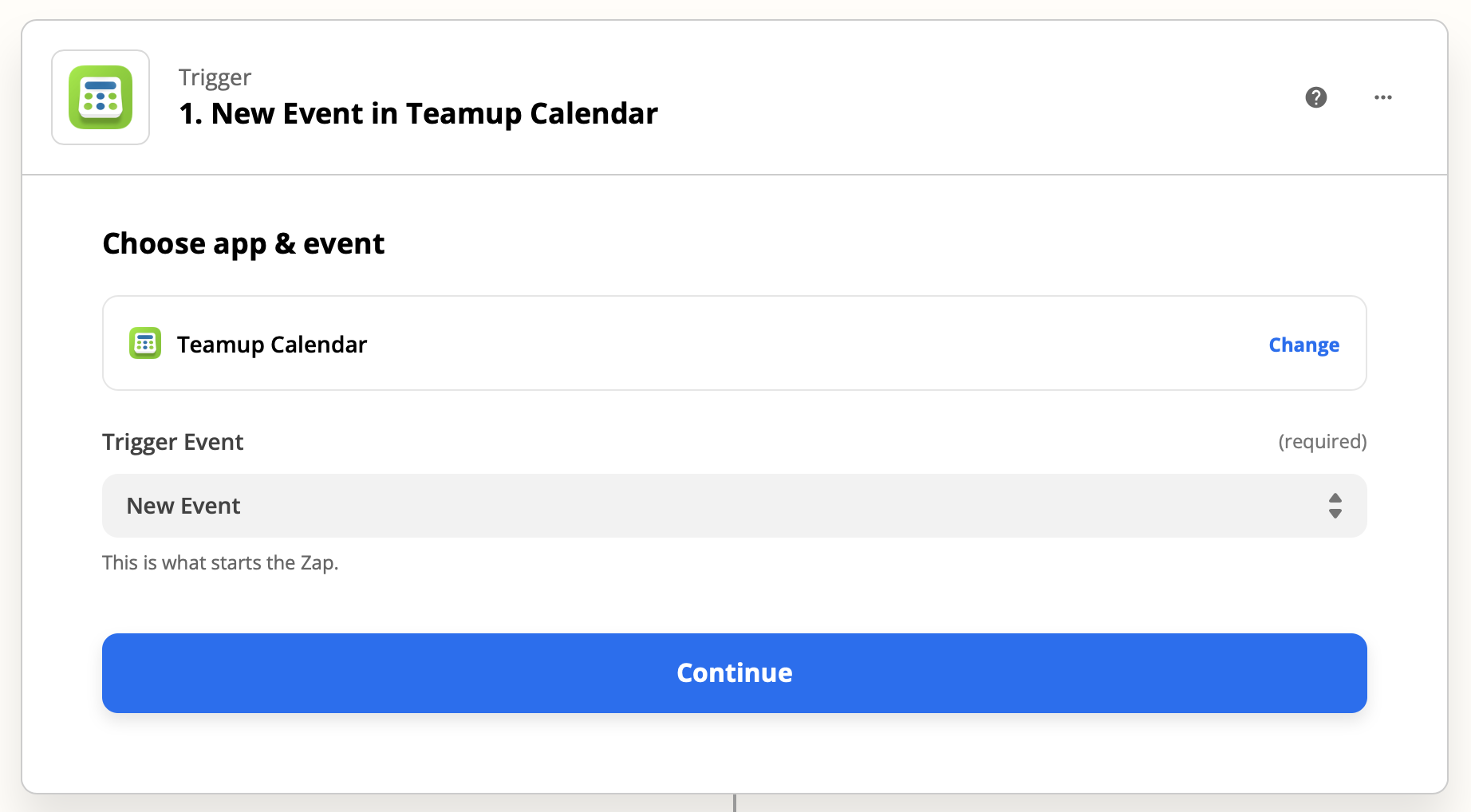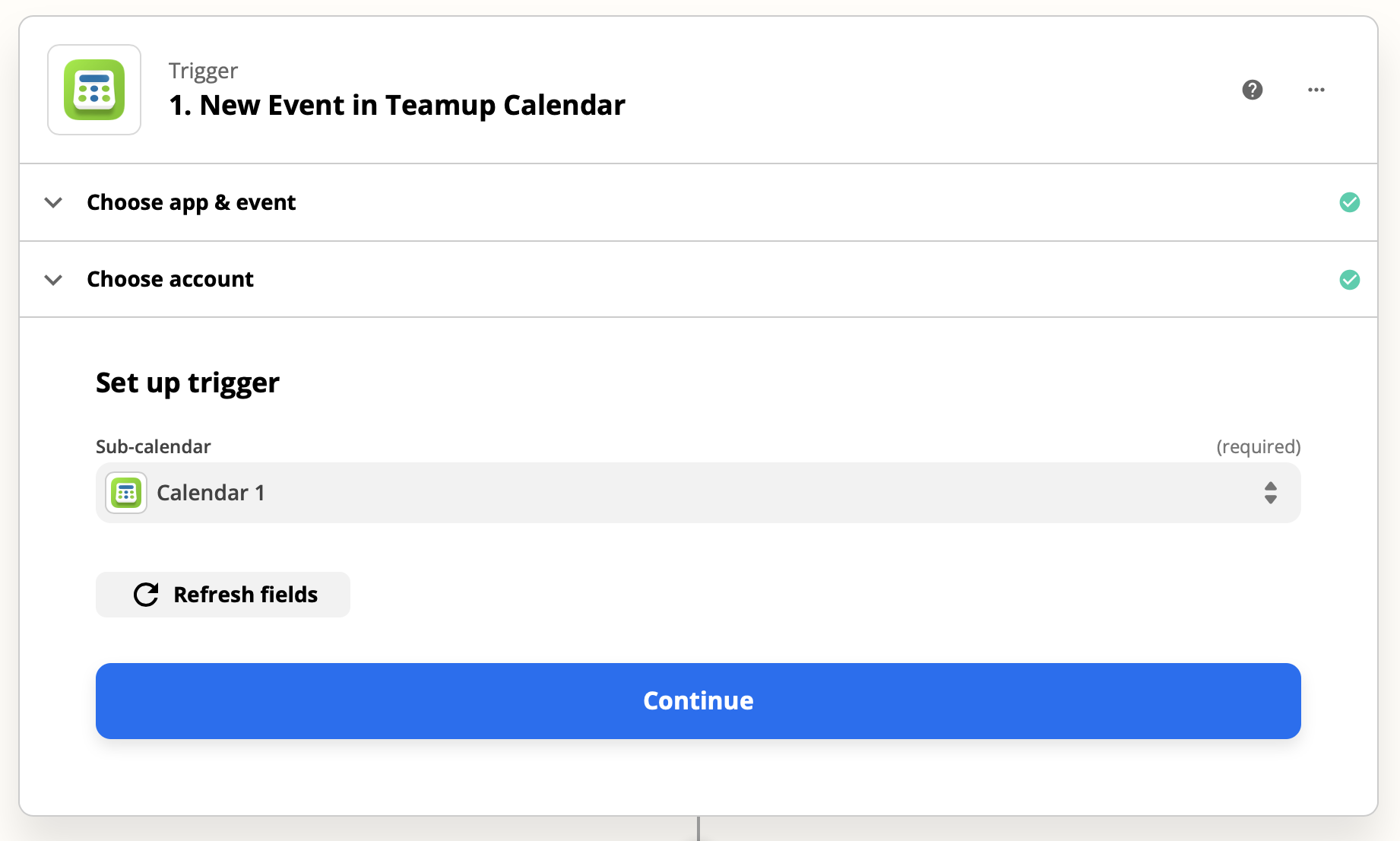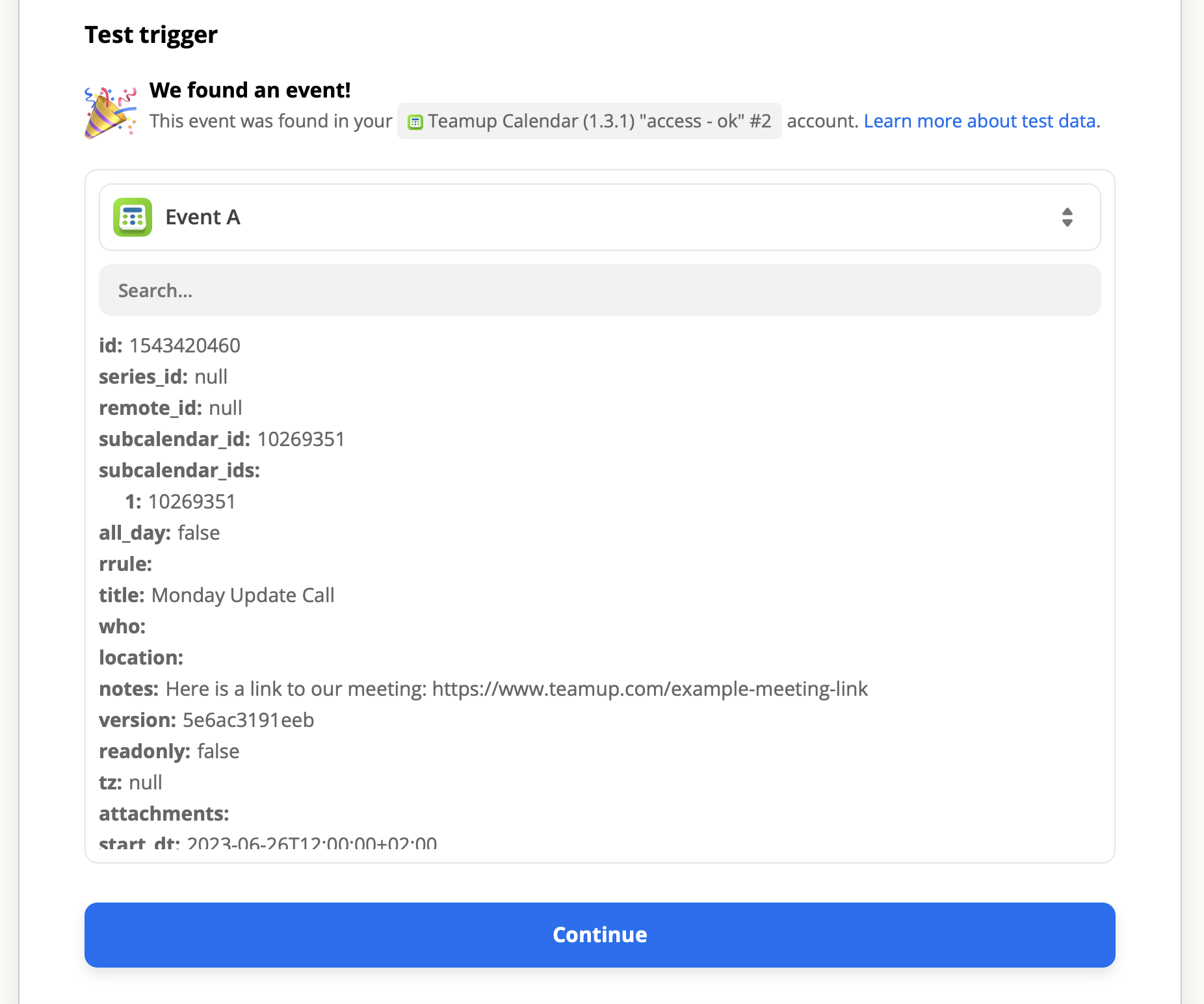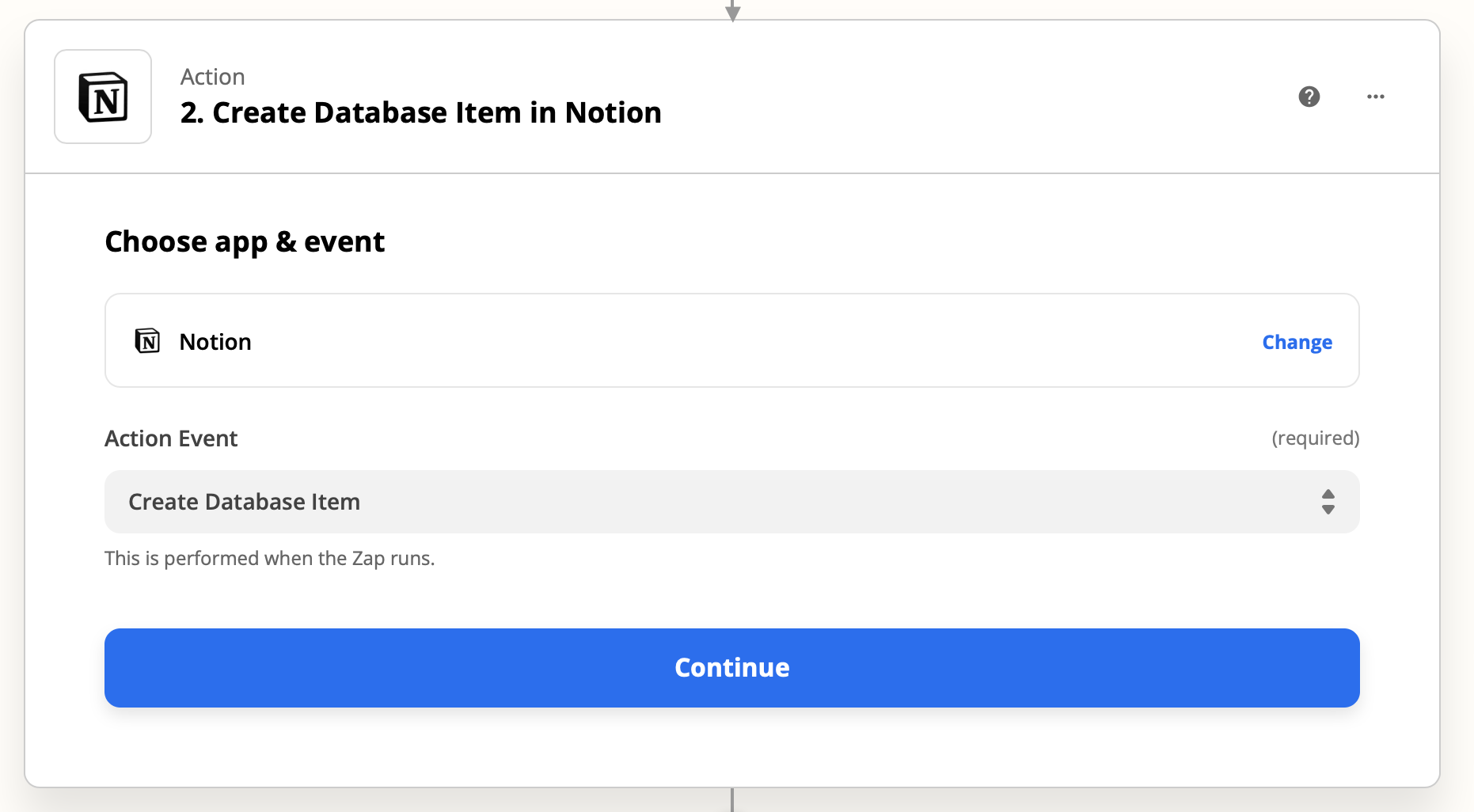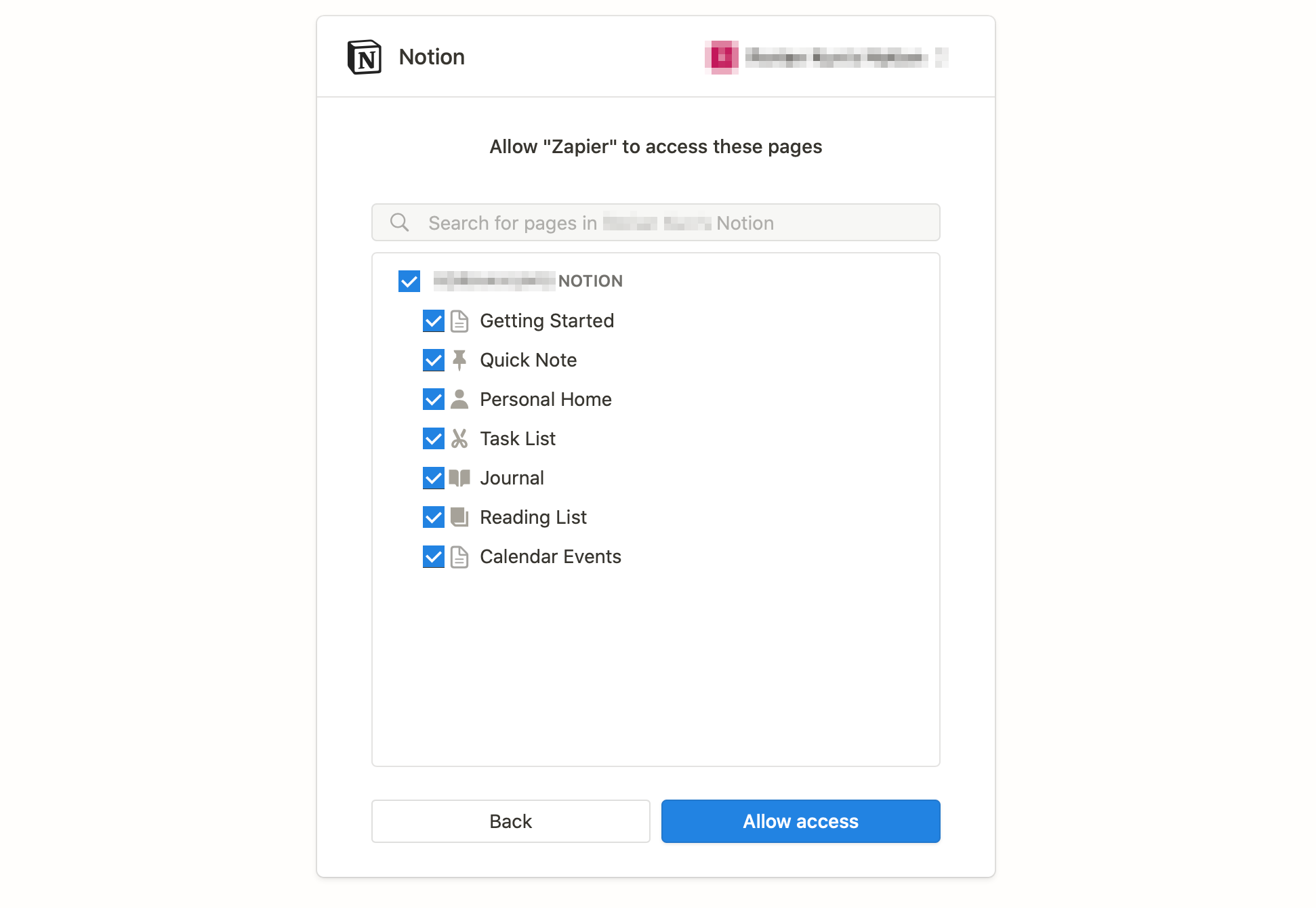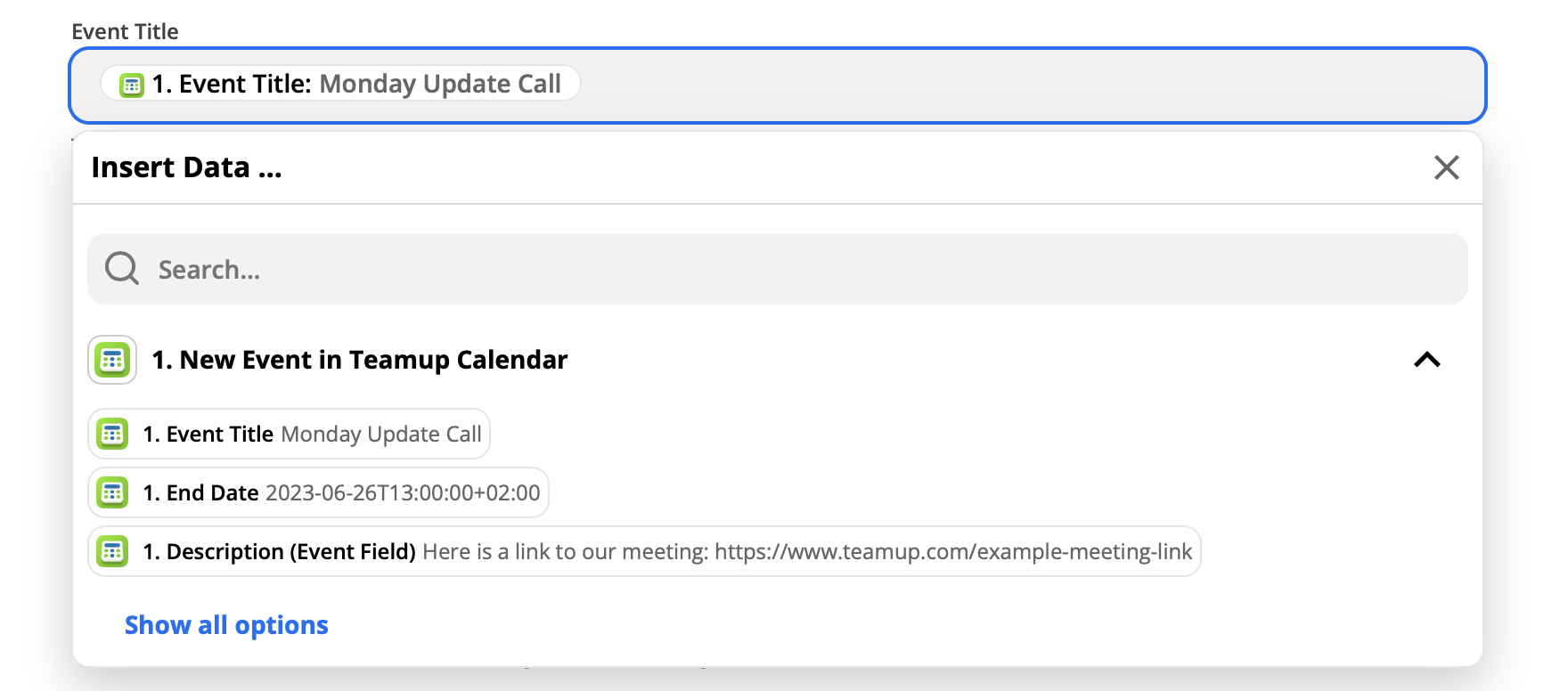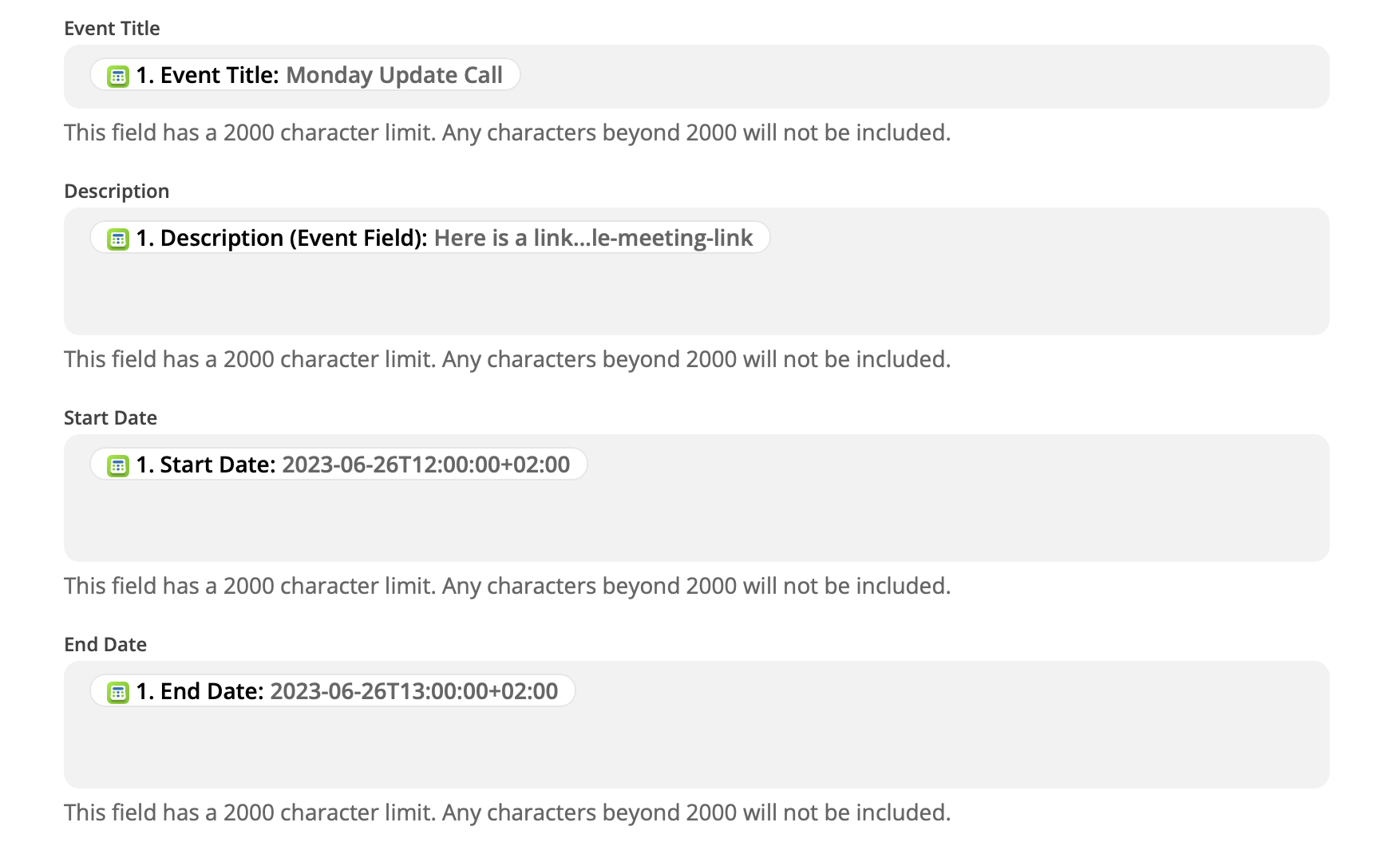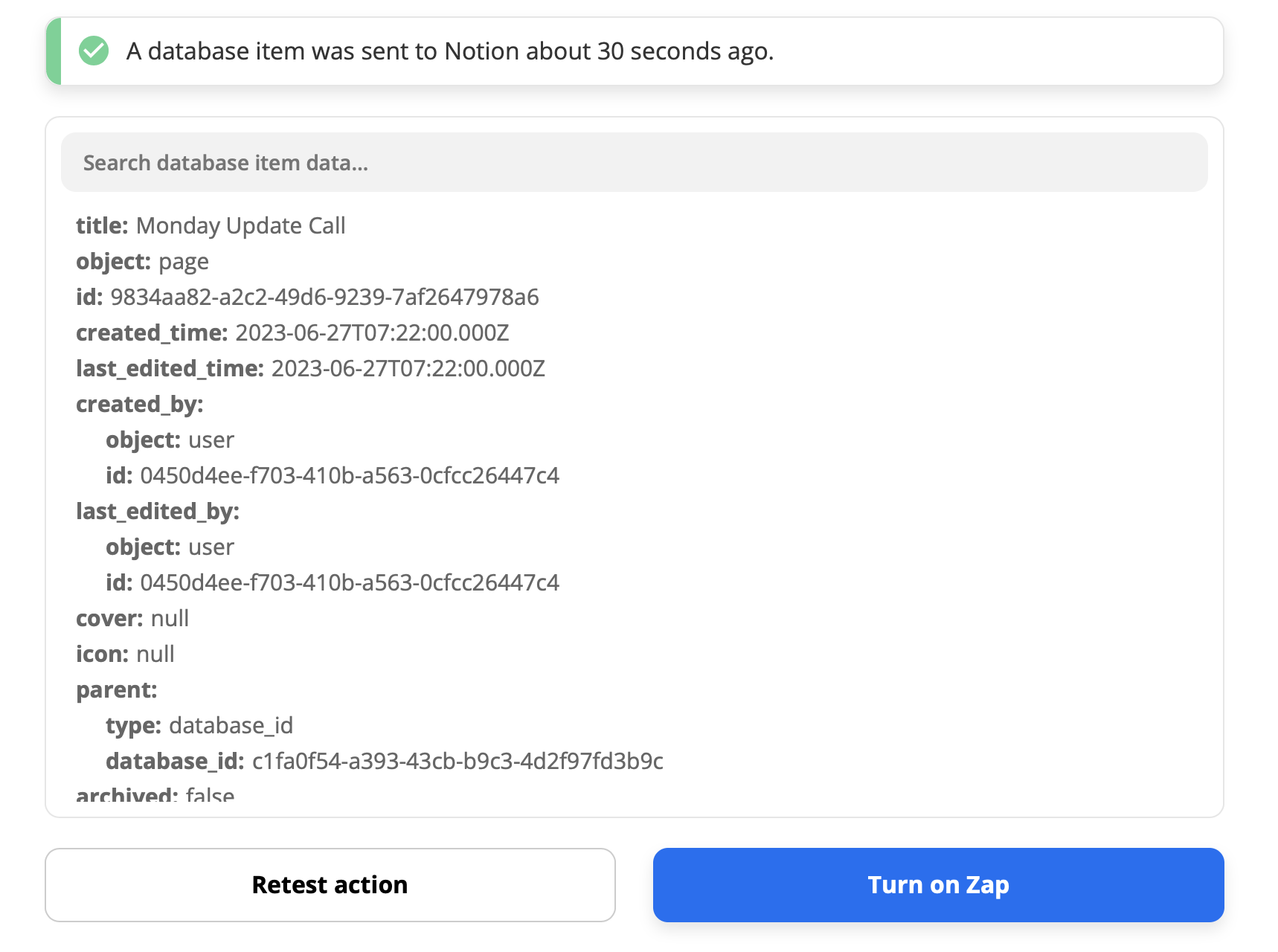Your Notion database doesn’t have to remain static with just notes, ideas, and tables. It can be transformed into a dynamic hub of information with the help of powerful automation.
One effective method is automatically syncing Teamup Calendar events with your Notion database using Zaps — Zapier’s automated workflows. This automation allows you to capture important details like event time, participants, and description, consolidating all your vital information within Notion without any additional effort.
Set up a Notion table
To ensure a well-organized data flow, you’ll need to set up a table in Notion where all the Teamup Calendar data can be seamlessly integrated.
- In your Notion account, create a new page.
- Add a new table (from the list of suggestions). While you can import existing data, starting with a blank database is recommended in this case.
- Within the table, create columns that correspond to the data you wish to capture from Teamup Calendar. For this example, let’s create four columns: Event Title, Start Date, End Date and Description.
Send new Teamup Calendar events to Notion
Zapier allows you to create automated workflows known as Zaps, which facilitate the transfer of information between different applications. You can build a Zap from scratch (no coding knowledge required) or use a pre-designed templates to get started quickly.
If you prefer using a template, click here to be directed to the Zap editor.
Set up the Teamup trigger
Let’s begin by configuring the trigger — the task that initiates your Zap.
If you’re using a Zap template, this step will already be pre-selected for you. Otherwise, follow these steps:
- Search for Teamup Calendar and select it as the trigger app
- Choose New Event as the trigger event.
- Click Continue to proceed.
If you haven’t connected your Teamup Calendar yet, you will be prompted to do so. Once you’ve connected, click Continue.
Now it’s time to set up your trigger.
- In the Sub-calendar field, select the specific calendar you wish to use.
- Click Continue.
Test the Teamup trigger
To ensure your trigger step is properly configured you’ll need to perform a test.
If your Teamup Calendar doesn’t have any events, create a test event now. This test event is necessary for Zapier to set up the remaining steps of your workflow.
- Click Test Trigger to run the test. Zapier will display the details of the event you just created.
- Once you’ve confirmed that the details are correct, click Continue to proceed with setting up the action step.
Set up the Notion action
Now it’s time to configure the action — the task your Zap will perform when triggered.
If you’re using a Zap template, the action steps will already be pre-selected. Otherwise, follow these steps:
- Search for Notion as your action app.
- Select Create Database Item as the action event.
- Click Continue to proceed.
If you’ve already connected your Notion account, it will automatically appear.
If not, click Sign In to connect your Notion account. Then choose the workspaces that contain the database you want to work with and click Allow Access to establish the connection with Zapier.
After connecting your Notion account, click Continue.
Customize the Notion database
Now it’s time to customize the database.
- Select the database you created in the Database field.

- Map the data from your Teamup Calendar to the corresponding columns you created in Notion. The Zap editor will display the columns you created.
- Click on each field and select the appropriate Teamup Calendar data from the options provided in the Insert Data dropdown. For example, choose Event Title for the Event Title field.
Here’s what our finished mapping looks like.
Once you’re satisfied with your action step, click Continue.
Test the Zap
Click Test Action to perform a test run of your Zap.
If the test is successful, you should see your Teamup Calendar event correctly added to your Notion database.
You can also verify if the data appears correctly in your Notion database. Here’s an example of how our test run looked in the Notion.
If everything appears as expected, your Zap is now ready to use. Going forward, every time you create a new event in your Teamup Calendar, it will automatically populate your Notion database.


